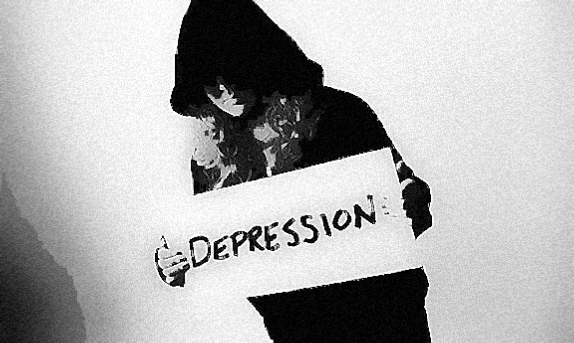Teen Bipolar Disorder
Bipolar disorder is an illness that can have serious impacts on teens and their families. Teen bipolar disorder, also known as manic-depressive disorder, causes teens to experience extreme moods, known as mania and depression. Mania causes a teen to feel overly energetic and irritable, while teens suffering from depression feel sad, tired, and unable to do anything. Scientists do not yet fully understand teen bipolar disorder, but it seems to be caused by chemical imbalances in the teen’s brain. Teen bipolar disorder cannot be cured, but it can be treated with therapy, and sometimes medications.
Teens with bipolar disorder experience intense moods, often without a clear cause. They may change rapidly from mania to depression, or experience one extreme or the other with long periods of normal or less extreme moods in between. These mood changes are more severe and extreme than the normal ups and downs that every teen experiences. Sometimes stress, medications, or environmental factors can trigger a manic or depressive episode, but the exact causes of bipolar disorder are not yet known. Bipolar disorder seems to have a genetic component, and teens whose close family members have bipolar disorder are more likely to develop bipolar disorder.
Commons signs of mania include:
- High energy
- Irritability
- Violent outbursts
- Excessive, rapid talking, often jumping from one topic to another
- Inability to concentrate
- Little need for sleep
- Poor judgement, sometimes leading to spending sprees, drug use, or sexual promiscuity
- Obsession with sexuality
- Grandiosity, which is an unrealistic sense of one’s abilities, such as thinking one has special powers. Many young people like to imagine having special abilities, have trouble evaluating risk, or exaggerate their own unique talents and skills; this generally only becomes a symptom if the teen tries to act on the ability, like trying to fly.
Episodes of depression can cause:
- Prolonged sadness or boredom
- A feeling of emptiness
- Loss of interest or energy
- Headaches and body aches
- Changes in sleeping or eating habits
- Fatigue
- Feeling worried, hopeless, guilty, or anxious
- Suicidal thoughts or behavior
Some teens with bipolar disorder show signs of mania and depression in the same day, sometimes even at the same time, such as feeling depressed, but engaging in manic activities. Other teens with bipolar disorder never have severe manic episodes, only minor episodes known as hypomania. Teens who suffer from bipolar disorder may deny that they have a problem, especially while experiencing mania. Some other signs of teen bipolar disorder can include:
- Poor performance in school
- Talking or thinking about running away
- Using drugs or alcohol
- Engaging in self-destructive behaviors, such as fighting
- Becoming isolated
- Being overly sensitive
- Delusions or hallucinations
- Thinking about or attempting suicide
Because doctors are just beginning to understand teen bipolar disorder, they are not yet sure of the number of teens who suffer from it, but about 10 million Americans have bipolar disorder. Many adults who develop bipolar disorder begin to show symptoms in their late teens, but researchers believe that bipolar disorder may begin much younger in some individuals.
A teen who may have bipolar disorder should visit a doctor, who can make sure the teen does not have another medical condition such as attention deficit hyperactivity disorder (ADHD), conduct disorder, or substance abuse problems. A doctor or therapist can recommend and provide treatments for teen bipolar disorder. Treatment may consist of counseling, often combined with a mood stabilizing medication. The use of medication by teens should be monitored carefully; while it helps many people, it may cause suicidal thoughts and behavior in teens.
Families can help teens with bipolar disorder by:
- Understanding, and helping the teen to understand, that he or she has an illness, and that this illness is not the teen’s fault, but that he or she can do things to feel better.
- Enrolling in family therapy.
- Seeking help for any other untreated mental illnesses in family members, such as depression or anxiety; this sets a good example and reduces stress in the family.
- Providing a quiet environment for the teen, with a regular schedule, especially for sleep.
- Being patient; avoid telling your teen to “snap out of it” or “get over it.”
- Always taking talk of suicide seriously and seeking immediate medical help for suicidal teens; be especially alert after a traumatic event like moving, divorce, death in the family, or loss of a friendship or boyfriend or girlfriend.
Some things teens with bipolar disorder can do to reduce symptoms include:
- Follow any treatments prescribed by your therapist or doctor
- Consider keeping a daily journal of your thoughts and feelings
- Learn ways to manage stress, such as yoga, deep breathing exercises, going for walks, or listening to soothing music
- Exercise, eat a balanced diet, and get enough sleep
- Avoid drugs, alcohol, and caffeine, which is found in coffee, tea, energy drinks, chocolate, and many sodas
- Ask for help when you feel you need it
Teens with bipolar disorder are at increased risk for suicide. A teen who is having suicidal thoughts or actions should get medical help immediately, or call 911 or a suicide prevention hotline, such as 1-800-SUICIDE (1-800-784-2433); check your phone book for local suicide prevention hotlines or mental health centers.
Sources:
National Institute of Mental Health, “Bipolar Disorder” [online]
WebMD.com and Healthwise, “Bipolar Disorder in Childhood” [online]
National Alliance on Mental Illness, “Bipolar Disorder” [online]
Nemours Foundation, TeensHealth, “Bipolar Disorder” [online]
Kowatch, et. al., “Treatment Guidelines for Children and Adolescents With Bipolar Disorder,” Journal of the American Academy of Child and Adolescent Psychiatry, 44:3, March 2005 [online]


